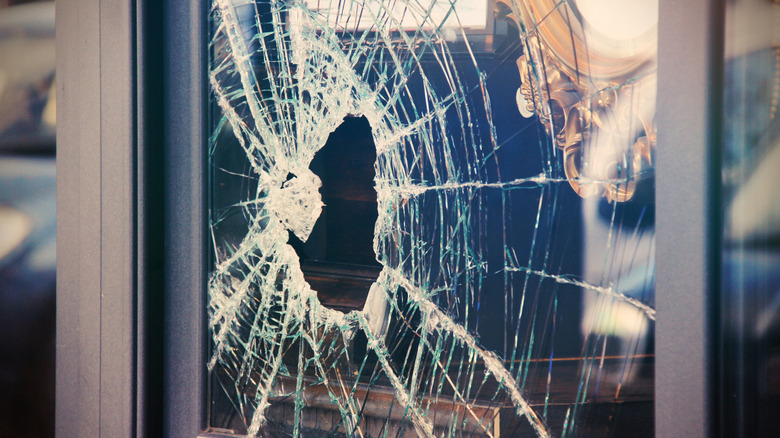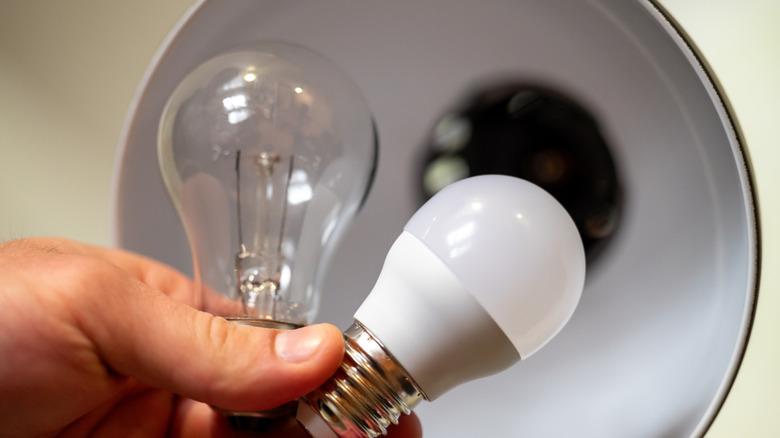Recycling as much waste as possible makes perfect sense when it comes to
transforming your residence into an environmentally friendly space
Glass is a material that can be repeatedly melted and recycled over many years. Given this, it would seem sensible for all glass to easily enter the recycling process. However, this isn’t always true for much of discarded household glass. Typically, only around 40% of glass sent to recycling centers meets the criteria for being reused. Items frequently turned away include light bulbs, Pyrex dishes, oven-safe cookware, windows, mirrors, frosted glass products, drinking glasses, and shattered container pieces.
Unfortunately, throwing this stuff into your curbside bin can cause major upsets to the recycling process. These items either contaminate the load or cause potential harm to workers. They all potentially reduce a recycling facility’s efficiency, costing the center more money. Throwing these things in with wine bottles and jelly jars can even lead to an entire batch being thrown out.
All is not lost if you can’t bring yourself to throw these things in the trash. If your unwanted stuff is still usable, donate it before considering recycling. However, even for broken glass, there are some alternative routes to keep it from becoming landfill fodder.
Read more:
Consider These 11 Trendy Alternatives To Traditional Barn Doors To Refresh Your Space
Why Can’t This Kind of Glass Be Recycled?

The issue with recycled glass lies in its tendency to break. Many pieces fragment either when placed into collection bins or during the sorting procedures. It’s not unexpected that these sharp fragments pose risks to people; however, they’re extremely difficult to isolate from other types of recyclable materials. Consequently, entire batches might end up being discarded as waste. This challenge has prompted several municipal recycling initiatives to stop accepting glass altogether.
Some forms of glass cannot be recycled due to their specific components. These materials have distinct chemical properties which cause them to melt at varying temperatures unlike regular glass bottles and jars. Glass items such as mirrors, windowpanes, and bulbs include special elements or layers that place them outside the recyclable scope. Similarly, dishes designed for high-temperature resistance—like those made of Pyrex—are also unsuitable for recycling processes. Additionally, drinking glasses and serving platters are crafted from substances that liquefy at different heats when compared to standard reusable glassware. Mixing these dissimilar kinds of glass during the recycling process yields an end product that lacks strength and consistency.
How to Handle Glass That Isn’t Suitable for Disposal Bins

Before opting for recycling or disposing of non-recyclable glass, think about fixing or repurposing the item yourself initially. As usual, be cautious when dealing with shattered glass.
You can apply superglue to fix shattered glass.
If the repair exceeds your comfort zone, check if there is one
Glass Doctor
This business strives to repair window glass whenever possible instead of immediately opting for replacement. They operate locations convenient to both the US and Canada.
Finding new homes for glass items not suitable for curb disposal often involves some investigation. Many municipalities possess bottle depots where inquiries via telephone or electronic mail could clarify whether they take shattered glassware. In cases of damaged windowpanes, Glass Doctor can assist with disposing of those that cannot be fixed. Retail outlets or community locations designated for dangerous materials may also provide services for recycling spent bulbs.
If your search for nearby glass reuse or recycling options turns out to be fruitless, you may find yourself with limited choices when dealing with broken glass—it often ends up in landfills. Before disposing of these pieces, ensure the safety of waste handlers by taking some precautions. Putting the glass fragments into a securely closed container marked clearly as “broken glass” can significantly reduce risks for those handling the trash. Additionally, consider several alternative approaches.
clever and innovative methods for giving new life to shattered glass around your house and outdoors
Included among these items are mosaics, sun catchers, or decorative pieces meant to be used as vase fillers in floral displays.
Liked this article? Sign up for expert home tips, DIY guides, and design inspiration from our newsletter.
House Digest newsletter
!
Read the
Original Article from House Digest
.


